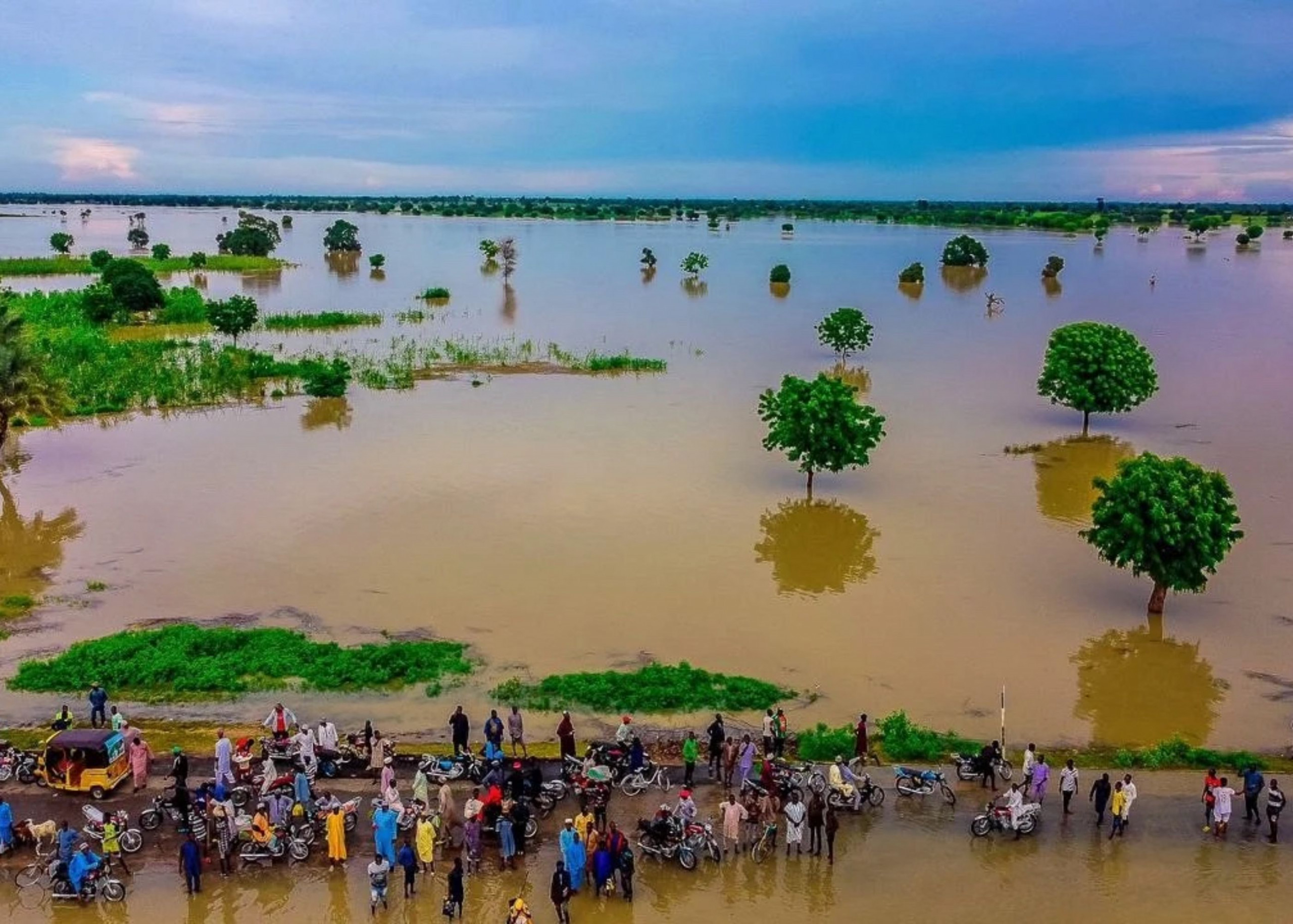New in Brief:
– Flooding in Nigeria is a persistent problem caused by a combination of factors, including geography, urbanisation, deforestation, and climate change.
– Water release from dams in neighbouring has further exacerbated flooding problems requiring urgent infrastructure development, early warning systems, and flood prevention initiatives.
Despite numerous efforts to mitigate flooding, the phenomenon continues to pose a significant threat to Nigeria’s population and infrastructure. The country’s geographical location, coupled with factors such as urbanisation, deforestation, and climate change, have contributed to the persistent flooding challenges.
One of the primary reasons for flooding in Nigeria is its geographical position. The country is located within the humid tropical climate zone, characterised by heavy rainfall throughout the year. This abundant rainfall, combined with the country’s extensive river systems, creates a conducive environment for flooding.
Furthermore, rapid urbanisation has worsened the flooding problem. As cities like Lagos and Abuja continue to grow at a rapid pace, natural drainage systems are often compromised or overwhelmed. The construction of buildings, roads, and other infrastructure can block water flow, leading to increased flooding.
Deforestation is another contributing factor. The clearing of forests for agriculture and logging can also disrupt natural drainage patterns. Trees play a vital role in absorbing rainwater, reducing the impact of flooding. When forests are destroyed, the land becomes more susceptible to erosion and flooding.
Climate change has further amplified the frequency and intensity of flooding events in Nigeria. Rising sea levels and changes in rainfall patterns have increased the risk of coastal flooding and inland flooding. Extreme weather events, such as heavy rainfall and storms, have become more common, further contributing to the flooding problem.
The Lagdo Dam: a transboundary threat
Nigeria is bracing for potential flooding in 2024 that could affect 11 states, as Cameroon has announced plans to start releasing water to ease pressure on its largest dam.
The Lagdo hydroelectric dam located on the Benue River in northern Cameroon, was constructed between 1977 and 1982. It’s main purpose of creation is to generate electricity and irrigate farmlands.
However, the dam has also faced challenges and controversies, particularly in relation to its impact on downstream communities in Nigeria.
For example, in 2012, Nigeria experienced a severe flooding event primarily caused by the release of water from the Lagdo Dam. This disaster displaced over two million people and caused widespread damage to agricultural lands.
Additionally, similar flooding incidents occurred in 2019 and 2022, resulting in the displacement of tens of thousands of people and significant disruptions to food production.
Already, more than 10 Nigerian states have been put on alert over expected release of water from the dam in the coming days.
According to Director General/Chief Executive Officer of the Nigeria Hydrological Services Agency, Umar Muhammed, authorities of the Lagdo Dam in Cameroon will initiate controlled water releases at a rate of 100m³/s (8,640,000m³/day) has already been initiated.
However, the agency revealed that the risk of flooding owing to this development is not high because the flow levels along the Benue River are still within cautionary limits.
Nonetheless, it warns all states bordering the Benue River system, namely: Adamawa, Taraba, Benue, Nasarawa, Kogi, Edo, Delta, Anambra, Bayelsa, Cross Rivers, and Rivers to heighten their vigilance and implement appropriate preparedness measures to mitigate potential flooding impacts.
Historically, the release of water from the Lagdo Dam has been a longstanding concern for Nigerians, particularly those living in states along the Benue River, as the dam serves as a key source of water for this major waterway.
Government efforts to address flooding
Reportedly, Nigeria’s minister of Water Resources and Sanitation, Prof. Joseph Utsev, warned that approximately 35,870,100 Nigerians in 10 states may be severely affected by floods in 2024.
In the 2024 Annual Flood Outlook, Utsev highlighted the potential for flooding in various regions of the country. He urged state governments and stakeholders to closely monitor early warning systems and take proactive measures to mitigate the impact of flooding.
He also reiterated the federal government’s resolve addressing the flooding crisis by its approval of a ₦108 billion intervention for flood prevention initiatives across all 36 states. This allocation was based on recommendations from the Presidential Committee on Flood Disaster Prevention.
Flooding in Nigeria has had a devastating impact in recent years. According to data from the National Emergency Management Agency (NEMA):
- In 2022, flooding ravaged many states, claimed 665 lives, displaced 2,437,411 persons, and affected 4,476,867 persons.
- In 2023, devastating floods affected 159,157 individuals, caused the loss of 28 lives, and displaced 48,168. The release of water from the Lagdo Dam contributed to some of the flooding cases experienced.
- For 2024, NEMA said flooding affected 1,048,312 people between April and September 2024, displaced 625,239 persons and killed 259 people.
To address the flooding challenge, Nigeria will need to implement or improve on various measures. These include the construction of dams, like the Dasin Hausa Dam, which aims at mitigating the floodwater effects of the Lagdo dam in Cameroon. Others include the construction of flood control channels, and early warning systems.
Additionally, efforts are encouraged towards promoting sustainable land use practices and reforestation.
Overall, addressing the flooding challenge will require a comprehensive and sustained effort from all stakeholders, including the government, communities, and international organizations.



